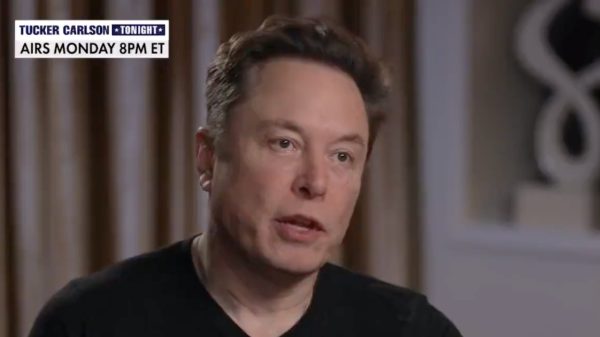Back in October, California Governor Gavin Newsom signed into law a ban on four food additives that are commonly found in processed foods such as cereal, candy, and soda: brominated vegetable oil, potassium bromate, propylparaben, and Red Dye No. 3. The legislation has been referred to as the “Skittles ban,” because it also initially targeted the titanium dioxide used to colour Skittles and other candy. The ban will come into effect on January 1, 2024, and will punish infringements with fines of up to $10,000.
At this stage, no specific food types will be banned by the California Food Safety Act, but foods containing the listed additives will have to be reformulated. All of the additives have already been banned in the European Union’s 27 member states and in other countries, including in the Third World, as a result of scientific research linking these additives to a wide variety of serious health problems.
Over 50 years’ worth of investigation has linked potassium bromate, for example, to cancers such as thyroid and testicular cancer, kidney damage, gut dysbiosis, and reproductive issues. It was banned in the EU in 1990 and Canada in 1994, before being classified as a possible carcinogen in 1999 by the International Agency for Research on Cancer. China and India banned it. Even Nigeria did. Potassium bromate was introduced for use in baking in the U.S. in 1914, long before the creation of a regulatory scheme for food additives. When the Food Additive Amendments of 1958 were introduced, with the requirement that new food additives should be determined to be safe for consumption before being used in products, potassium bromate was “grandfathered” through as “generally recognised as safe” (“GRAS”), since it was already on the market. More on this in a moment.
Unsurprisingly, representatives of the big food-industry players have responded with outrage to the new law. The National Confectioners’ Association has claimed that it will undermine consumer confidence and sow confusion about the safety of food products. I always thought pastry-makers were supposed to be jolly chaps, with big fat bellies and curly moustaches caked with sugar. I guess not. In reality, they’re chaps who want to put known carcinogens in your cake because it makes more money that way—with you getting cancer, maybe, or being unable to have kids. So it goes.
The author of the bill that became the Skittles Ban, Assemblyman Jesse Gabriel, described the passing of the law as a “huge step in our effort to protect children and families in California from dangerous and toxic chemicals in our food supply.” I’m inclined to agree, to a point. This is, without doubt, an important step and should be applauded by anybody, Democrat or Republican, who cares about the health of the nation. California, for all its well-publicised faults, is now the first state to have departed from the hopelessly corrupt federal food safety system under the control of the FDA.

Matthew Hoobin / Wikimedia Commons
But this is just the beginning – a beginning – and it does nothing to address the fundamental problem at the heart of the food regulation system. Such legislation remains within the realm of reaction: dealing with the harmful effects of food ingredients long after they’ve been allowed into the food supply. What we need is a thoroughgoing change to the system that prevents harmful substances from getting out there in the first place. Until we have that, Skittles Ban may follow Skittles Ban, but there will be no conceivable end in sight.
The threat to health posed by processed food is now well recognised. Significant attention has been brought to the issue recently by Dr Chris Van Tulleken’s book Ultra-Processed People, which details how processed food has displaced traditional foods to become the basis of most people’s diets in the developed world, with dire consequences. Processed-food consumption has been linked to every one of the besetting diseases of modern life, from obesity and cancer to autism and even dementia. Dr Van Tulleken got to experience some of the unpleasant effects for himself when he took part in a BBC programme that aired during the pandemic. For one month, he ate a perfectly common diet of 80% processed food, suffering weight gain, piles, insomnia, anxiety, loss of libido, uncontrollable food cravings, and, amazingly, as MRI scans revealed, physical changes to the structure of his brain that are typical of drug addicts. All this after just one month!
Everybody is susceptible to the negative effects of processed-food consumption, but children, with their complex developmental needs that must be satisfied within a narrow window of time, are especially vulnerable. This is why it’s so worrying, and such a dereliction of our duty as adults, that children are being allowed to consume more and more of this dreck. The average toddler (two-to-five-year-old child) in Britain now derives 66% of their calories from processed food, the highest rate of consumption in the world. American and Australian toddlers aren’t much further behind, with 58% and 47% of their daily calories coming from processed food.
We really are setting up our children to fail. As I noted in another essay for this publication, being overweight as a child can have lifelong health repercussions, not least of all significantly reduced fertility. A shocking recent study found that overweight boys grow up to be men with testicles that are up to 1.5 times smaller than those of men who were normal weight as boys. Smaller testicles means less testosterone, the master male hormone, and lower sperm quantity and quality. Losing weight as an adult may help, but it can’t change the fact that your testicles didn’t develop properly during puberty.

Gaulsstin / Flickr / Edited
Whether we’re talking about preservatives, emulsifiers, texturisers, artificial sweeteners, colourings, or any of the myriad additives that are integral to processed food, it’s clear these chemicals are a significant cause of the negative effects associated with consumption of processed food. Around 2,000 such additives are licensed for use in the EU. In the U.S., by contrast, the number rises to 10,00 – although, in truth, nobody really knows how many additives are in the American food supply. This is insanity, plain and simple, and you’ve got the FDA to thank for it.
I’ve written about the corruption at the heart of the FDA more than once, especially with regard to the introduction of novel food ingredients and medicines. The FDA’s primary constituency, as far as I’m concerned, is not the American people, but big business. Profits come first, and the health and safety of the American people come a distant second, if they even figure at all.
“Who watches the watchmen?” asked the Roman satirist Juvenal. An apt question. Anybody watching the FDA will notice how gracefully its members move from roles within the organisation into high-paying industry jobs. These jobs are often with companies the regulators have supported during their time at the FDA. They call it a “revolving door” for good reason.
Last month, an investigation by The British Medical Journal revealed how two regulators who helped approve Moderna’s mRNA COVID vaccine then went to work for the company within months of leaving the FDA. Previous investigations by The British Medical Journal and by Science magazine have showed that this sort of thing happens regularly. The investigation by Science, in 2018, noted that “11 of 16 FDA medical examiners who worked on 28 drug approvals and then left the agency for new jobs are now employed by or consult for the companies they recently regulated. This can create at least the appearance of conflicts of interest.” The appearance of conflicts of interest…
Its non-independence from the food and drug industries is just one thing that’s wrong with the FDA. When it comes to food ingredients in particular, equally important is the GRAS designation I mentioned in the opening paragraphs, which has bigger loopholes than a pair of giant’s boots.

FDA
When the new food-additive system was introduced, in the 1950s, there were reckoned to be about 700 food additives in use, of which 400 were thought to be safe in the long term. Establishing the safety of a substance in the long term is obviously harder than in the short term. If a substance kills or hurts you instantly, or within a few hours or days of consumption, it’s pretty clear. As time passes, however, causality becomes harder to trace and more disputed. Despite these difficulties, the new additive regulations were supposed to make sure additives with the potential to cause long-term harm did not enter the food supply.
In reality, however, something very different happened. The new GRAS designation, which was intended to allow common ingredients like table salt to be used in processed food without onerous safety testing, became a means of allowing all manner of substances to be accepted as safe without any real testing whatsoever. Hundreds of substances, including potassium bromate, were accepted as GRAS simply because they were already in widespread use. Companies then started to apply voluntarily for GRAS status for new additives, and the FDA let them get away with submitting their own “safety” data, which the FDA could then choose to accept or reject.
It gets worse. As a huge backlog of applications began to pile up at the poorly staffed FDA, companies chose to determine the safety of new additives in secret and add them to food products without any consultation with the regulator. The FDA could have asserted its authority, but it decided to retrospectively formalise this state of affairs, a process that was completed in 2016.
Since 2000, there have been only 10 applications to the FDA for full approval of a new food additive, out of 766 that have been added to the American food supply. The other 756 were self-determined by the manufacturers themselves.
In 2023, then, it’s totally legal and above board for a company to produce a new food additive, decide that it’s safe, and bring it to market without any scrutiny from the FDA.
Like I said, this is insanity.But it’s a form of insanity that’s widespread today. The presumption of “safe until proven otherwise” rules more broadly when it comes to new inventions. It’s why we’re bathed in estrogenic plastic chemicals that interfere with our hormones and may, according to some experts, make the entire species infertile as early as the middle of the century. Instead of properly investigating plastics and their effects on life back when they were first invented, we pushed ahead, producing billions of tons of the stuff and creating a new way of living that couldn’t function without it. Now 3,000 tons of plastic fall in snow over Switzerland every year, and microscopic pieces of plastic – so-called “microplastics” – are found in every human bodily tissue, from our lungs and our guts to our brains, with negative effects we are only just beginning to understand.
What we need is a different way of approaching novel products, one that makes human health, not corporate profits, the deciding factor. That would mean treating new products as “harmful until proven otherwise” and require rigorous independent testing before they ever end up in food or our bodies by any other means. Given the immense power corporations have over the political system and our lives, that won’t be easy. But nothing worth having ever is.
This op-ed features opinion and analysis from Raw Egg Nationalist, the popular health and fitness author recently profiled in the Tucker Carlson Originals documentary, “The End of Men“. His book, The Eggs Benedict Option, is available on his website and from popular book sellers, and his magazine, Man’s World, is available online.




































